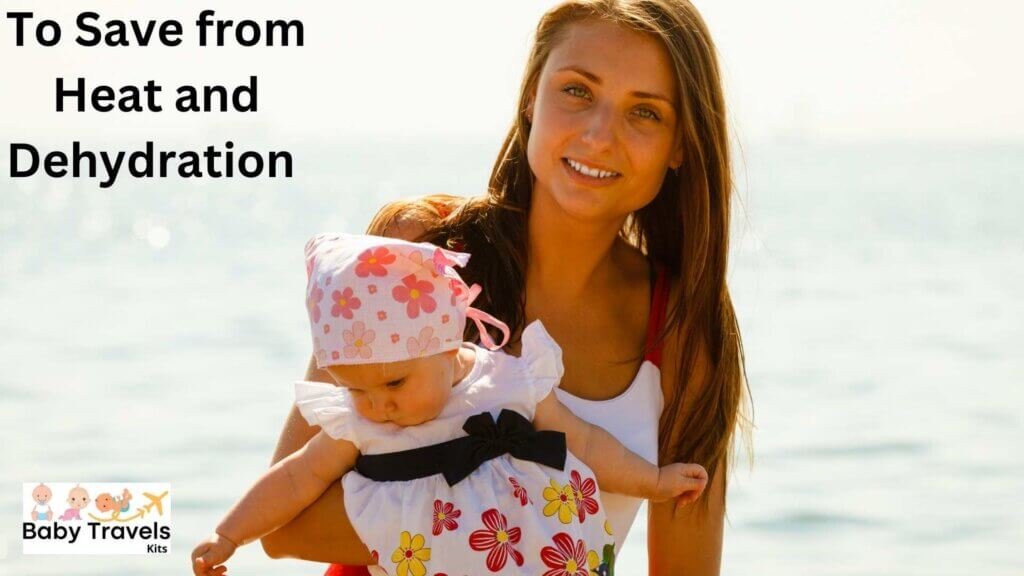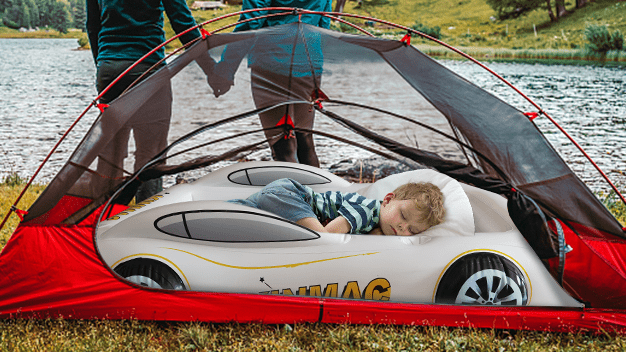As a new parent, one of the most exciting things you can do is introduce your little one to new experiences. Going to the beach is definitely one of those experiences that you don’t want your child to miss out on. However, if your child is only two months old, you may have some concerns about taking them to the beach.

Can I take my 2 month old to the beach?
In this article, we will discuss everything you need to know about taking a two-month-old to the beach, including safety tips and precautions.
See also: Top 8 Best Baby Bath Tubs for Newborns That Make Bath Time Fun
Sun Protection
One of the most important things to consider when taking your two-month-old to the beach is sun protection. Babies under six months of age are particularly susceptible to sunburn, which can cause dehydration, fever, and even heatstroke. To protect your baby from the sun, you should always keep them in the shade as much as possible.
Bring an umbrella, tent, or canopy to create a shady area for your baby to rest. It is also essential to dress your baby in lightweight, loose-fitting clothing that covers as much skin as possible. Don’t forget a hat and sunglasses for added protection.
Water Safety
The beach can be a fun place for babies, but it is also essential to be aware of the potential dangers of the water. Never leave your baby unattended near the water, even if it is just a shallow area. A baby can drown in as little as an inch of water. Make sure to keep your baby within arm’s reach at all times, and if you want to go for a swim, take turns with your partner or another adult to watch the baby.

Sand Safety
While the beach can be a lot of fun, it can also be full of hazards. Sand can get everywhere, including in your baby’s eyes, mouth, and ears. Make sure to bring a large blanket or towel to create a clean area for your baby to sit or lie down. Keep an eye on your baby at all times to prevent them from eating sand, which can cause choking or digestive problems.

Heat and Dehydration
The beach can be very hot, and it is important to keep your baby cool and hydrated. Make sure to bring plenty of water and formula or breast milk for your baby. If your baby is bottle-fed, bring enough clean water to prepare the bottles.

You should also bring a cooler with ice packs to keep the drinks and food cool. Keep an eye on your baby for signs of dehydration, including a dry mouth, sunken eyes, and lethargy. If you notice any of these symptoms, take your baby to a cool, shaded area and give them small sips of water.
Final Thoughts
Taking a two-month-old to the beach can be a fun and rewarding experience for both parents and the baby. However, it is essential to take the necessary precautions to keep your baby safe and healthy. Make sure to bring plenty of shade, water, and protection from the sun, and never leave your baby unattended near the water. With the right preparation, your beach trip can be an enjoyable and memorable experience for everyone involved.
See also:
Baby Travel Tent- 5 Best Travel Tents for Infants and Toddlers
What age can I take my baby to the beach?
As a new parent, you may be looking forward to taking your little one to the beach, but you may be unsure about what age is safe and appropriate.
Read more
Beach Baby
The subject of the lyrics is not holiday love, but a broken love relationship between two high school students in Los Angeles in the 1950s
“Beach Baby” is a song by the British band The First Class.
What age can I take my baby to the pool?
Before taking your baby to the pool, ensure their safety by checking the water temperature with a thermometer.
Water temperature should be around 32°C (90°F) for babies. Also, use swim diapers as regular diapers are not suitable for swimming. Swim diapers prevent leaks and hold in solid waste.
Furthermore, avoid peak hours at the pool and always supervise your baby, staying within arm’s reach and keeping a watchful eye on them.
To make the experience of swimming with your baby enjoyable, start slowly by introducing your baby to the water gradually. Begin by sitting with them in the shallow end of the pool and gradually move deeper as they get more comfortable. Bring along toys or games to keep your baby entertained and distracted from any fear or anxiety they may feel.
Swimming with your baby can be a great bonding experience. Talk to them, sing songs, and make eye contact to help them feel more secure and connected to you. Swimming can be tiring for babies, so take breaks frequently to allow them to rest and catch their breath.




